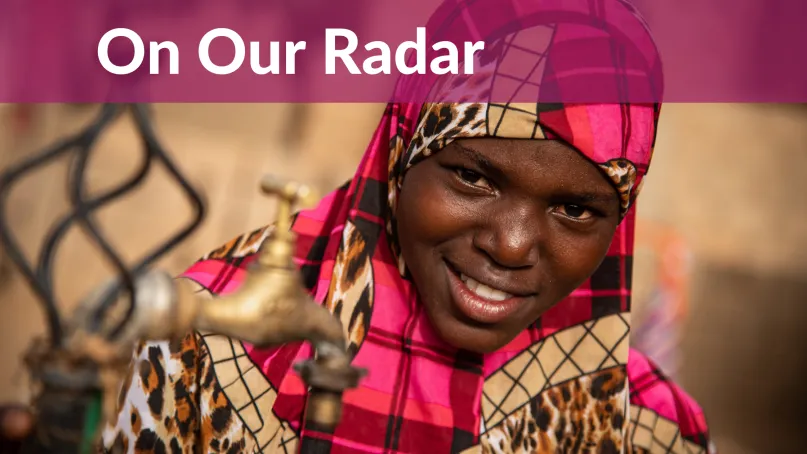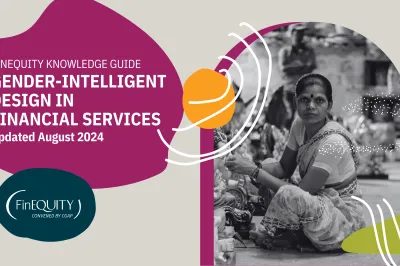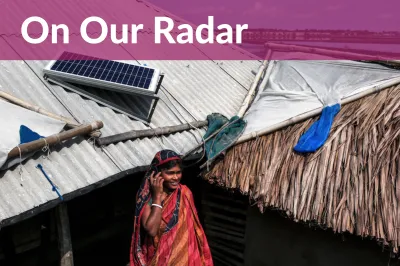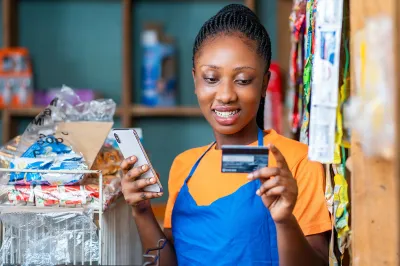FinEquity Africa On Our Radar: August 2024

An updated take on "What We're Reading". The FinEquity Africa team brings you a curated list of women's financial inclusion and economic empowerment content we've been consuming recently, from podcasts, new initiatives and articles to videos and social posts.
On Our Radar
Global Gender Gap Report 2024
The Global Gender Gap Report 2024 highlights Sub-Saharan Africa's progress in gender parity, ranking sixth globally. The region has made significant strides advancing by 5.6 percentage points since 2006, with 21 of its 35 economies in the top 100. Notably, Namibia ranks in the top 10. Over half of the countries in the region have closed more than 70% of their gender gap, though disparities remain. Economic participation and opportunity has improved to 68.1%, and political empowerment shows positive trends, particularly in Mozambique and South Africa.
Microfinance Services as a Tool to Enhance Financial Inclusion in Lesotho
In recent years, Lesotho has made remarkable strides in financial inclusion, with 87% of its population having access to formal financial services in 2021. This commendable achievement positions the country among the most financially inclusive in the region. Surpassing the 85% target set in its 2017-2021 National Financial Inclusion Strategy, Lesotho is steadily progressing towards its objective of financial inclusion for all. This blog, unpacks how microfinance services are enabling financial inclusion and driving progress for the Basotho people.
Meagre Gender Data Blocks Equality for African Women
A lack of comprehensive gender data in Africa hinders progress toward gender equality and sustainable development. This gap prevents governments from effectively addressing the unique challenges faced by women, particularly in rural areas and marginalized communities. This blog stress the need to strengthen gender data collection and aligning it with national financial inclusion strategies for improving overall development outcomes across the continent.
Diagnostic of Gender and Age Norms in Financial Inclusion - A Pilot Study in Five Districts of Malawi
This latest report from FAO investigates how social norms impact rural women’s and youth’s ability to access and use formal financial products and services in Malawi. It confirms the importance of considering social norms when designing interventions to improve women’s and youth’s economic empowerment, and offers concrete recommendations for the development of such interventions and programming.
The report is intended for development actors, United Nations agencies and non-governmental organizations, including the United Nations Rome-based Agencies, as well as financial service providers and policy makers in Malawi.
Making Ethiopia's Financial Sector Work for Women: 10 Evidence Based Ideas
This document suggests 10 concrete, evidence-based ideas for action. The ideas are based on a review of the available evidence, from Ethiopia and beyond,on ‘what works’ in closing key gender gaps in the use of financial services. They also take into account recent data on financial inclusion in the country as well as current policy priorities, especially those expressed in the National Bank of Ethiopia’s National Financial Inclusion Strategy. The ideas are grouped into four thematic sections: advancing women’s careers in finance; closing gender gaps inaccess to credit; closing gender gaps in the use of digital financial services; and regulating for women’s financial inclusion. Some of them can be put into action by Ethiopia’s banks and microfinance institutions, others by the central bank, digital financial service providers or development partners.
From Collateral to Cashflow: Expanding Access to Finance for Nigeria’s Female Business Owners
Women in Nigeria are starting and growing businesses at a remarkable rate offering a vast untapped market for business lending. The World Bank, through its Nigeria Women Entrepreneurs Finance Initiative (We-Fi), partnered with the Development Bank of Nigeria (DBN) and two commercial banks in Nigeria – Access Bank and Sterling Bank – to develop innovative credit solutions that expand access to finance for women entrepreneurs. This case study summarizes key lessons from this work, including an initial diagnostic; an assessment of demand for business loans; analysis of SMEs who applied to and/or received Access Bank cashflow loans; and administrative data from Access Bank’s cashflow loan program.


